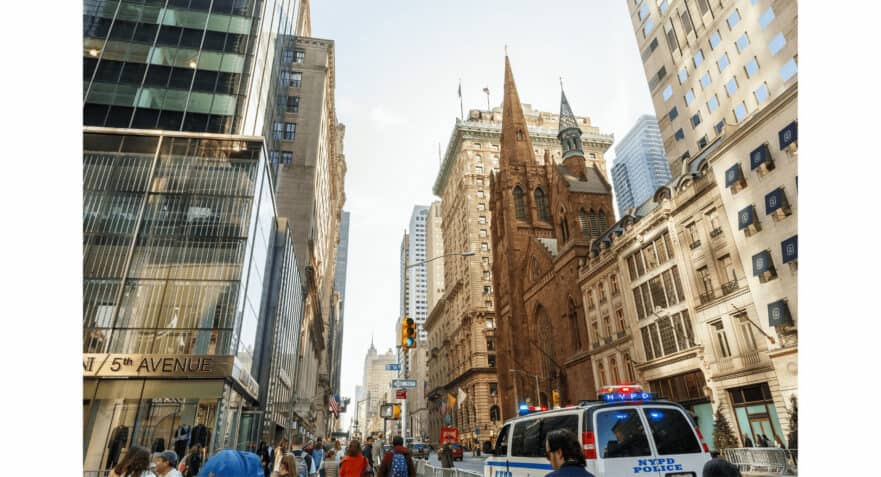- The Harm of Smoking to the Ears - April 9, 2025
- The Importance of Exercise for Hearing Health - March 11, 2025
- Movie Theaters and Hearing Aids - February 13, 2025
In our bustling modern world, where noise is an inevitable companion, we often underestimate the profound impact of noise pollution on our hearing health. Beyond the annoyance of honking horns, construction clamor, and blaring sirens lies a silent threat that can gradually erode our ability to hear and enjoy the sounds of life. It probably doesn’t surprise you that there’s a clear relationship between noise pollution and hearing health.
The Decibel Dilemma
At the heart of noise pollution lies the measurement of sound intensity: decibels (dB). While some noise is a natural part of the environment, certain levels can be detrimental to our hearing. Everyday sounds, such as conversation or rustling leaves, typically register around 30-60 dB. However, exposure to sounds exceeding 85 dB can lead to hearing damage over time.
Common sources of noise pollution include traffic, industrial machinery, and recreational activities like concerts or sporting events. Prolonged exposure to these elevated sound levels can result in noise-induced hearing loss (NIHL), a gradual yet irreversible condition that affects millions globally.
The Stealthy Onset of Hearing Damage
Unlike sudden and dramatic events that cause immediate hearing loss, the effects of noise pollution often manifest subtly. NIHL develops gradually, with individuals initially having trouble hearing high-pitched sounds or distinguishing conversations in noisy environments. Over time, the damage accumulates, leading to a permanent reduction in hearing ability.
Research indicates that even short bursts of intense noise, such as fireworks or loud music, can contribute to hearing damage. The cumulative impact of repeated exposure can accelerate the deterioration of auditory function, making it essential to address noise pollution as a public health concern.
The Unseen Toll on Physical and Mental Health
Beyond its direct impact on hearing, noise pollution can take a toll on both physical and mental well-being. Chronic exposure to loud noise has been linked to increased stress levels, elevated blood pressure, and sleep disturbances. These factors, in turn, contribute to a range of health issues, including cardiovascular problems, compromised immune function, and heightened susceptibility to mental health disorders.
For children and adolescents, exposure to noise pollution can interfere with cognitive development, impeding academic performance and concentration. Moreover, the incessant barrage of noise in urban environments has been associated with heightened anxiety and decreased quality of life.
Mitigating the Risks of Noise Pollution
As we navigate the intricate soundscape of our daily lives, taking proactive measures to mitigate the risks of noise pollution becomes more important than ever. Consider the following strategies to safeguard your hearing health:
- Awareness and Education: Cultivate awareness about the sources of noise pollution in your environment. Stay informed about safe noise levels and the potential risks associated with prolonged exposure.
- Protective Measures: Embrace protective measures such as earplugs or noise-canceling headphones in noisy environments. This is particularly crucial during activities like concerts, fireworks displays, or when operating loud machinery. Encourage others in your family to protect their ears as well.
- Soundscape Design: Advocate for thoughtful urban planning and design that prioritizes quieter, more harmonious living spaces. This may include implementing noise barriers, creating green spaces, and zoning regulations.
- Volume Moderation: Limit exposure to excessively loud sounds, especially through personal audio devices. Adopt the 60/60 rule – listen at 60% of the maximum volume for no more than 60 minutes at a time.
- Regular Hearing Check-ups: Schedule routine hearing check-ups to monitor your auditory health. Early detection of hearing issues allows for timely intervention and preventive measures.
- Community Engagement: Engage with your community to address noise pollution collectively. Advocate for policies that promote quieter urban spaces and responsible noise levels in public spaces.
The Future Soundscape
Recognizing the impact of noise pollution on hearing health gives us the opportunity for collective action and change. By prioritizing our auditory well-being and fostering spaces that respect the delicate balance of our ears, we can preserve the gift of hearing for generations to come.
If you think you may have hearing loss, book a hearing test today. We’ll help you identify any hearing loss, as well as let you know the kind of hearing loss you have. Together we’ll explore treatment options and help you find the perfect devices so you can enjoy all the sounds around you.

